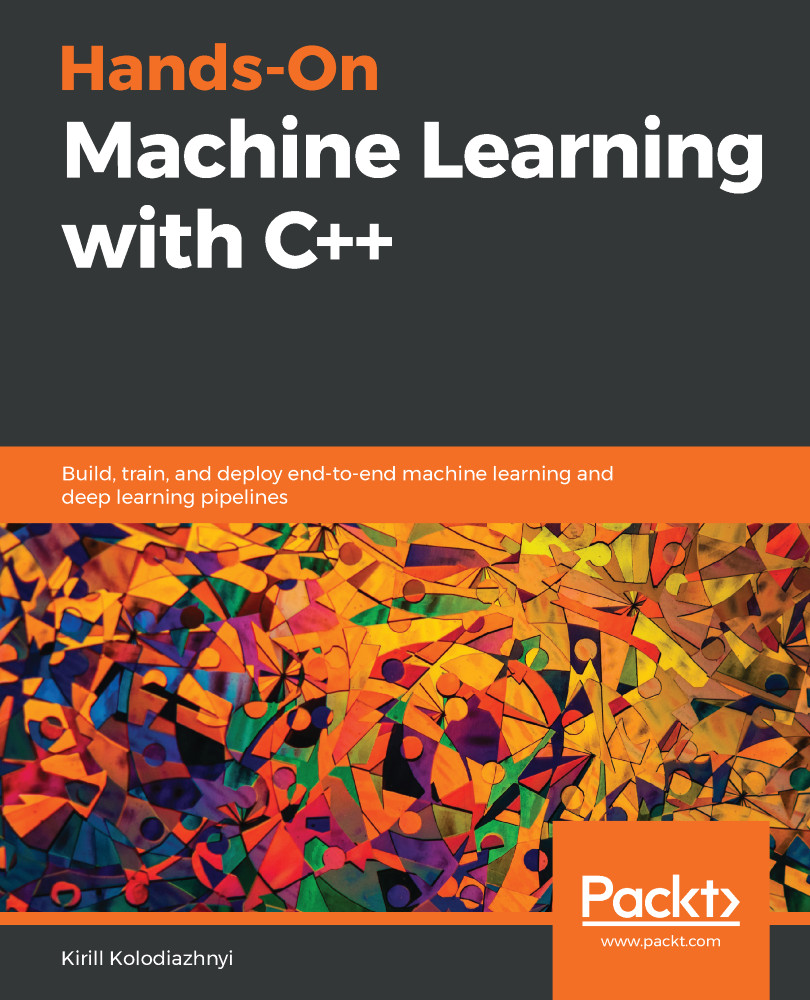In this chapter, we learned how to save and load model parameters in different ML frameworks. We saw that all the frameworks we used in the Shogun, Shark-ML, Dlib, and PyTorch libraries have an API for model parameter serialization. Usually, these are quite simple functions that work with model objects and some input and output streams. Also, we discussed another type of serialization API that can be used to save and load the overall model architecture. At the time of writing, the frameworks we used don't fully support such functionality. The Shogun toolkit can load neural network architectures from the JSON descriptions, but can't export them. The Dlib library can export neural networks in XML format but can't load them. The PyTorch C++ API lacks a model architecture that supports exporting, but it can load and evaluate model architectures that have been...
 United States
United States
 Great Britain
Great Britain
 India
India
 Germany
Germany
 France
France
 Canada
Canada
 Russia
Russia
 Spain
Spain
 Brazil
Brazil
 Australia
Australia
 Singapore
Singapore
 Hungary
Hungary
 Ukraine
Ukraine
 Luxembourg
Luxembourg
 Estonia
Estonia
 Lithuania
Lithuania
 South Korea
South Korea
 Turkey
Turkey
 Switzerland
Switzerland
 Colombia
Colombia
 Taiwan
Taiwan
 Chile
Chile
 Norway
Norway
 Ecuador
Ecuador
 Indonesia
Indonesia
 New Zealand
New Zealand
 Cyprus
Cyprus
 Denmark
Denmark
 Finland
Finland
 Poland
Poland
 Malta
Malta
 Czechia
Czechia
 Austria
Austria
 Sweden
Sweden
 Italy
Italy
 Egypt
Egypt
 Belgium
Belgium
 Portugal
Portugal
 Slovenia
Slovenia
 Ireland
Ireland
 Romania
Romania
 Greece
Greece
 Argentina
Argentina
 Netherlands
Netherlands
 Bulgaria
Bulgaria
 Latvia
Latvia
 South Africa
South Africa
 Malaysia
Malaysia
 Japan
Japan
 Slovakia
Slovakia
 Philippines
Philippines
 Mexico
Mexico
 Thailand
Thailand






















